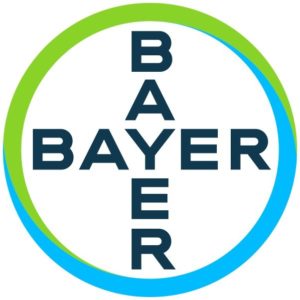Mar 15, 2024Immediate answers from Bayer’s GenAI system
Bayer has developed a GenAI system that will give farmers a wealth of information at their fingertips, answering farm management questions immediately.
The company has been using proprietary agronomic data to train a large language model (LLM) with years of internal data, insights from thousands of trials within its vast testing network and experience from Bayer agronomists around the world.

Instead of a time-consuming process, the intuitive system responds to natural language and can generate expert information within seconds. Validated by agronomists, the pilot is already unlocking productivity for Bayer teams in the U.S. while significantly outperforming out-of-the-box LLMs currently serving the agricultural market.
The future benefit in comparison to today’s reality: A farmer asks an agronomic advisor a series of detailed questions about a product’s characteristics, performance under specific conditions and application rates. Today, the advisor searches online materials, sends text messages to colleagues, gathers information from multiple sources and puts together a response, while the farmer waits hours or days for urgently needed information. Bayer’s expert GenAI system is changing the game, making better information more quickly and readily available.
“Our unique GenAI system has the potential to serve agronomists and benefit farmers all over the world, further advancing AI as an indispensable technology for agriculture,” Amanda McClerren, chief information officer and head of digital transformation and information technology for Bayer’s Crop Science division,” said in a news release. “We’ll continue to use traditional AI to develop better products, and we’re also committed to harnessing new GenAI technology in a thoughtful way that augments and supports knowledgeable experts across the industry, bringing value to farmers and those who serve them.”
 Developed in collaboration with Microsoft as leading technology partner and Ernst & Young as an industry partner, Bayer is exploring ways to integrate the expert GenAI system into its digital offerings, and the company anticipates broad opportunities for collaboration with other agricultural offerings and partners. Designed as a global capability, the tool will benefit millions of smallholder farmers in the future by democratizing access to agronomic advice and product information.
Developed in collaboration with Microsoft as leading technology partner and Ernst & Young as an industry partner, Bayer is exploring ways to integrate the expert GenAI system into its digital offerings, and the company anticipates broad opportunities for collaboration with other agricultural offerings and partners. Designed as a global capability, the tool will benefit millions of smallholder farmers in the future by democratizing access to agronomic advice and product information.
“AI and automation are helping farms of all sizes produce more while using fewer natural resources, and we’re starting to see how they can enhance decision-making on almost any plot of land,” Ranveer Chandra, managing director of research for industry and chief technology officer of agri-food at Microsoft, said in the release. “With Bayer’s strengths in data science, digital and especially agronomic expertise, we’re pleased to be contributing to an expert system that will make agronomic understanding more accessible and empower those responsible for feeding the planet.”
Bayer aims to expand the pilot of the expert GenAI system to selected agronomists and potentially farmers as early as this year, while continuing to advance a separate GenAI prototype allowing users to directly query their own farm data. Because they also pull insights from closed data sets, these GenAI tools are unique for agriculture and will bring more value to farmers, agronomists and other industry users, compared to out-of-the-box LLMs that only use open-source data.
Advancing ‘cloud-connected acre’ solutions
In addition to collaborating with Microsoft on the GenAI system, Bayer announced an update late last year on the companies’ strategic partnership to bring readymade capabilities, AgPowered Services, to the agri-food industry.
Making available a capability that was previously for internal use only, Bayer Historical Weather brings a comprehensive weather dataset to Azure Data Manager for Agriculture that spans the last 40 years and provides detailed, field-level weather insights across global agricultural regions. Integrating tools from IBM, including from the IBM Environmental Intelligence Suite, the new capability can inform weather risk assessments and actuary processes. It will also be used by Bayer and now others to forecast crop seasonality and production changes year over year, as well as train agronomic models.

Building on the commitment to provide machine data connectivity with leading original equipment manufacturers (OEMs), Bayer is developing a connector that enables access to irrigation data from Lindsay Corporation, an irrigation solution provider. This expands the data types available to Azure Data Manager’s enterprise customers, making it possible for them to connect to irrigation data in the same seamless fashion as weather, imagery, OEM data and other data types. For technology providers, it brings down the cost of technical investment required to develop these tools. For farmers, it accelerates the development of digital tools that can help them monitor, measure, and control water usage in their fields.
The new cloud offerings will also support regulatory and sustainability reporting. For example, capabilities that provide supply chain traceability can help ensure compliance with new laws like the EU Deforestation Regulation, which is expected to go into effect at the end of 2024. Bayer Smart Boundary ID uses satellite imagery to detect the boundaries of a field, and automatically identifies the geographic area within a field where the seasonal farming activity took place. The solution can help commodity traders ensure regulatory compliance, as well as serve food companies and financial institutions who are looking to monitor growing progress.
Under industry preview, the cloud offerings from Bayer and Microsoft will make it possible for organizations to access ready-made capabilities and build on top of a robust digital infrastructure, instead of developing from scratch.
















